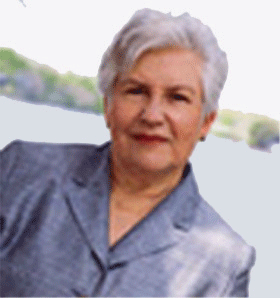Gloria F. Donnelly, Ph.D., RN, FAAN, FCPP
Dean and Professor, College of Nursing and Health Profession
Drexel University
Editor in Chief, Holistic Nursing Practice
Background:

Gloria F. Donnelly, PhD, RN, FAAN
Gloria Ferraro Donnelly, a leader in nursing education, both regionally and nationally, is Dean of the College of Nursing and Health Professions at Drexel University. Before coming to Drexel University, she served as founding Dean of the School of Nursing, La Salle University, Philadelphia, PA. A native Philadelphian, Dr. Donnelly earned her Bachelor of Science in Nursing from Villanova University, Villanova, PA. She holds a Master of Science in Nursing from the University of Pennsylvania, School of Nursing with specializations in psychiatric nursing and nursing education. In 1985 she was awarded a federal National Service Research Pre-Doctoral Fellowship to attend Bryn Mawr College where she received the Ph.D. in Human Development in 1985.
Dr. Donnelly is the author of four textbooks, the winner of two American Journal of Nursing Book of the Year awards. She is currently the editor of Holistic Nursing Practice, a refereed journal published by Lippincott, Williams and Wilkins and has published 100 articles and chapters. Further, she continues to teach and design courses particularly online.
Dr. Donnelly serves on many corporate boards including the Board of Hahnemann University Hospital, the Advisory Board of the Nurses Services Organization, a professional liability company and the Philadelphia Convention and Visitors Bureau. For nine years, Dr. Donnelly served as Chairman of the Board of Directors for Horizon House Inc., an organization that serves residents of the Delaware Valley who are experiencing mental illness and mental retardation. She has been honored as a March of Dimes, Woman of Achievement and as a Philadelphia Business Journal Woman of Distinction.
For the past 26 years, Dr. Donnelly and her husband, Joseph, have lived with and cared for three elderly parents, Dr. Donnelly’s mother and father and Joe’s mother. Her insights on the rewards and stresses of family care giving are intended to create perspective and successful strategies for those family members, who willingly or reluctantly, are now family caregivers.
Overview:
This show will address the following issues; understanding the stages and individual expressions of dementia including the problems of short term memory loss; depression and agitation; sun downing; wandering and issues of safety. Insights from 26 years of experience as a family caregiver, caring for 3 elderly parents living with me and my husband.
- The discussion will highlight the prevalence of dementia in the US, signs of onset of dementia and the natural progression including symptoms such as memory loss, sun downing and personality changes, i.e. agitation and depression.
- Differentiating between dementia and depression. Having the primary care provider do an objective assessment. To medicate or not. How certain drugs can wreak havoc on the elderly with dementia. Paradoxical reactions and dangerous side effects. Father’s reaction to an antipsychotic. What we know about the very old and medication regimens.
- Promoting safety in the environment and preventing wandering and “running away from home.” The safe home environment, alarms and vigilance.
- Stages of dementia and the progression of memory loss. Dealing with the parent who does not recognize you anymore. Managing the stress of frequent interactions with the loved one experiencing dementia.
3 Key Points:
- Family caregivers need information and strategies on dealing with all of the facets of dementia in loved ones through all of the stages. There are many associations and organizations that offer such information such as AARP; the Alzheimer’s’ Association and local healthcare institutions that may have websites and offer support programs for family caregivers.
- There needs to be a strong focus on structuring a safe environment for the person experiencing dementia and an environment for caregivers that includes respite.
- As dementia progresses, caregivers need support and advice on whether or not it is possible to continue care in the home and what resources might be available for either daycare, respite or full placement in long term care.

 Valentine Group Health
Valentine Group Health


